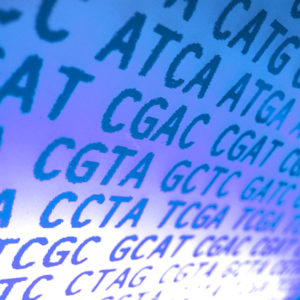Next Generation Sequencing Bioinformatics (Santiago, Chile)
20–25 January 2019
Pontificia Universidad Católica de Chile, Santiago, Chile
Hands-on introduction to bioinformatics for next generation sequencing.
Summary
In collaboration with the Facultad de Ciencias Biológicas of Pontificia Universidad Católica de Chile in Santiago, Chile, we are pleased to announce our latest Overseas Course in Next Generation Sequencing Bioinformatics.
Next generation sequencing has become an essential tool in current genetic and genomic analysis. It is increasingly important for
experimental scientists to gain the bioinformatics skills required to assess and analyse the large volumes of sequencing data produced by next generation sequencers.
This course aims to provide a hands-on introduction to bioinformatics for next generation sequencing and to equip participants with the essential informatics skills and knowledge required to begin analysing next generation sequencing data and carry out some of the most common types of analysis.
What will I learn?
The course programme will start with an overview of prominent sequencing technologies and algorithmic theory and principles of
bioinformatics, followed by intensive practical computational sessions using sequence analysis techniques and tools applicable to any species or genome size. A variety of applications will be covered from post-sequencing analysis (QC, alignment, assembly, variant calling) to RNA-Seq and cancer genomics. Accompanying the lectures and practical sessions will be a series of seminars by invited speakers, who will highlight their cutting-edge work harnessing the power of next generation sequencing technologies to address a wide range of biological questions.
This course is open to applicants from Latin America and the Caribbean.
The course is free to attend for non-commercial applicants. Limited bursaries to cover travel, accommodation and sustenance costs are also available. The course will be taught in English with language support from instructors.
The course aims to provide a hands-on introduction to bioinformatics for next generation sequencing, and should not be considered a complete education in the theoretical and mathematical foundations of the topics.
Related courses in Latin America
We run additional genomics courses in Latin America for researchers and clinical microbiologists/public health scientists.
Please visit our Overseas Courses events listings page.
Programme
The hands-on programme will cover several aspects of next generation sequencing data analysis, including lectures, discussions and practical computational sessions* covering the following:
- Introduction to NGS technologies
- Introduction to the unix command line
- Advanced unix
- NGS data formats and tools
- Sequence alignment+QC
- SNP/indel theory and practical
- Structural variation theory and practical
- RNA-seq analysis
- ChiP-seq analysis
- Sequencing data visualisation with the Integrated Genomics Viewer
- Accessing public sequencing repositories
- Participant projects and presentations (final day)
Learning Outcomes
On completion of the course, participants should be able to:
- Use the unix command-line as a tool for data analysis
- Describe the different NGS data file formats available
- Perform QC assessment of high throughput sequencing data
- Explain the algorithmic concepts behind short read alignment, variant calling and structural variant detection
- Perform read alignment, variant calling and structural variation detection using standard tools
- Analyse RNA-Seq and CHiP-seq data
- Perform a genome assembly using NGS data
- Describe the different data types available in public sequence repositories and how they are organised
*Please note: The practical sessions will be taught exclusively through Unix/Linux. Therefore, participants are required to have some familiarity with the Linux operating system. This will be essential for participants to fully benefit from the course. There are numerous online introductory tutorials to the UNIX/Linux operating system and command line, including:
Instructors and speakers
COURSE INSTRUCTORS
Marcela Sjoberg Herrera Pontificia Universidad Católica, Chile
Daniela Robles-Espinoza Int. Lab for Human Genome Research, Mexico
Ximena Ibarra Cancer Research UK Cambridge Institute, University of Cambridge, UK
Eric T. Dawson University of Cambridge National Cancer Institute and Wellcome Sanger Institute, UK
Alejandra Medina-Rivera Int. Lab for Human Genome Research, Mexico
Ana Rosa Moya Beltran Fundación Ciencia & Vida, Chile
ASSISTANTS
Guillermo Parada Wellcome Sanger Institute, UK
Alejandro Montecinos Pontificia Universidad Católica, Chile
How to apply
Prerequisites
This course is open to applicants from Latin America and the Caribbean.
Applicants should be postdoctoral scientists, senior PhD students, junior faculty members or clinicians/healthcare professionals actively engaged in or soon to commence research involving next generation sequencing data analysis. The course will be taught in English with language support from instructors.
Please note: The practical sessions will be taught exclusively through Unix/Linux. Therefore, participants are required to have some familiarity with the Linux operating system. This will be essential for participants to fully benefit from the course. There are numerous online introductory tutorials to the UNIX/Linux operating system and command line, including:
http://www.ee.surrey.ac.uk/Teaching/Unix
http://swcarpentry.github.io/shell-novice/
Applications
Applications can be submitted online. Places are limited and will be awarded on merit. If you have any problems with the online application process, please contact us.
Please note: Applications must be supported by a recommendation from a scientific or clinical sponsor (e.g. supervisor, line manager, or head of department). A request for a supporting statement will be sent to your nominated sponsor automatically during the application process. Applicants must ensure that their sponsor provides this supporting statement by the application deadline.
Applications without a supporting statement will not be considered.
Deadline for Applications: Closed
Cost
Cost
The course is subsidised by the Wellcome Genome Campus Advanced Courses and Scientific Conferences Programme and is free to attend for non-commercial applicants. Please contact us for the commercial fee.
Bursaries
Overseas courses are free to attend for non-commercial applicants. Limited bursaries to cover travel, accommodation and sustenance costs are available and are awarded on merit. If you would like to apply for a bursary, please complete the bursary section of the online application form.
Please note that both the applicant and sponsor are required to provide a justification for the bursary as part of the application

